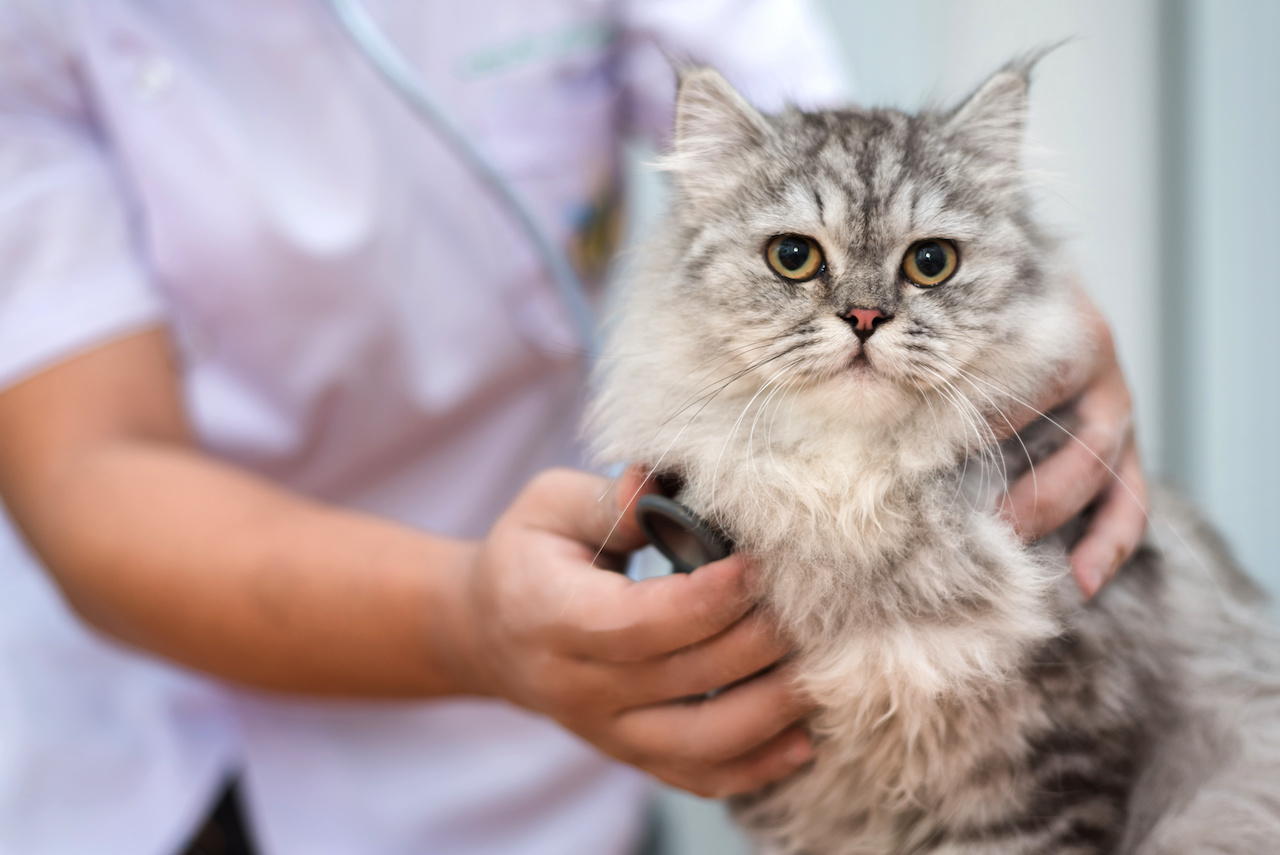
Cardiology
What is an Echocardiogram
An echocardiogram, also known as an echo or cardiac ultrasound, is a diagnostic tool for looking closely at the inside of the heart and surrounding tissue. Like an ultrasound, an echo uses high frequency sound waves to create live images that allow our doctors to get an idea about the size, shape, and function of the heart, its four chambers, values and surrounding structures.
What is the Procedure?
Echocardiograms are typically done with the pet lying on a table. A transducer or probe is held against the skin over the heart that sends sound waves to the heart which are then translated to images on a
screen. Because hair does not conduct soundwaves very well, so the fur is clipped over the heart prior to the procedure. Alcohol or ultrasound gel may be used on the skin to provide better conductions.
Echocardiograms are typically painless and often done in a quiet, dark room. Some pets are able to lie comfortably during this procedure, but some require sedation to safely undergo an echocardiogram. Your doctor will advise which is best for your pet!
Why Would My Pet Need this Procedure?
We recommend echo screening as part of our cardiac disease work up plan. If your pet was recently diagnosed with a murmur or is suspected to have heart disease based on x-rays or by coughing or fainting, your pet may need an echocardiogram.
We tailor our medications and treatments to the individual so understanding the problem allows us to provide the best treatment.
Echocardiograms can also be used to determine if treatments are helping or if a change in dosage or new medication is required.
Although heart problems are found more often in older pets, these conditions can affect pets at any age. Heart disease is usually a life-threatening conditions, but early diagnosis and appropriate therapy can extend your pet’s life. If caught soon enough, some forms of heart disease can be cured.
Heart disease can lead to congestive heart failure (CHF), which occurs when the heart can no longer pump blood effectively. If an animal is suffering from CHF, fluid usually accumulates in and around the lungs and sometimes in the abdomen. Congenital heart disease (animals born with a heart problem), valvular heart disease (abnormalities of the heart valves), arrhythmias (rhythm disturbances), and heartworm disease can all lead to CHF.
Call us to schedule an appointment if your pet starts breathing rapidly or coughing, loses his or her appetite, tires easily, seems weak, or has trouble exercising. We can discover many heart problems during a physical exam. Additional tests, such as an electrocardiogram (ECG), radiographs (x-rays), and ultrasounds, are usually needed to accurately identify the cause of the heart disease or failure.
